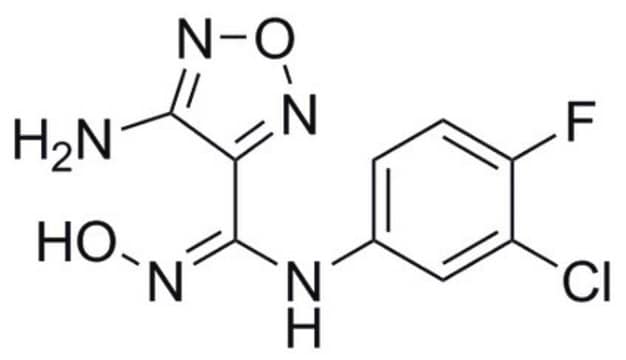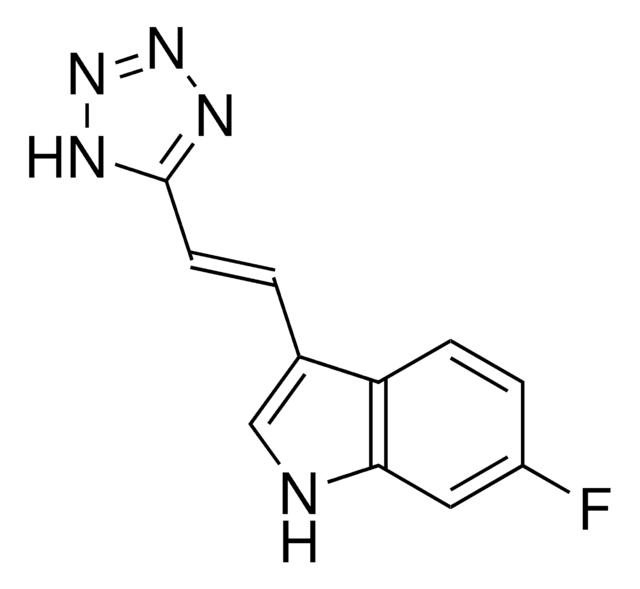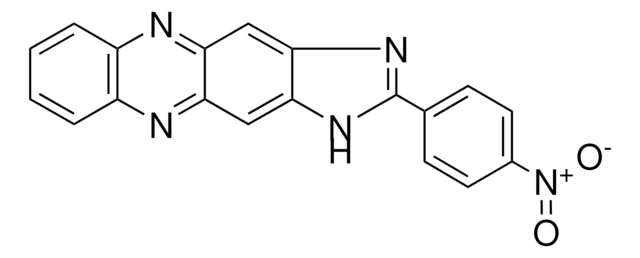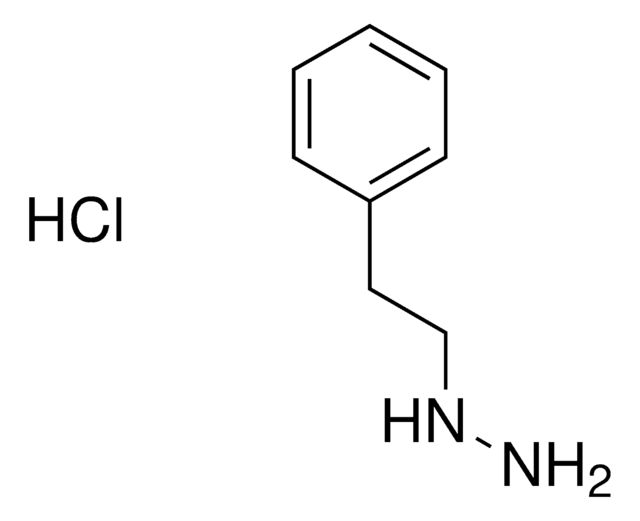SML0287
680C91
≥98% (HPLC)
Synonyme(s) :
6-Fluoro-3-[(1E)-2-(3-pyridinyl)ethenyl)-1H-indole
About This Item
Produits recommandés
Niveau de qualité
Pureté
≥98% (HPLC)
Forme
powder
Couleur
white to beige
Solubilité
DMSO: ≥10 mg/mL
Température de stockage
2-8°C
Chaîne SMILES
Fc1ccc2c(\C=C\c3cccnc3)c[nH]c2c1
InChI
1S/C15H11FN2/c16-13-5-6-14-12(10-18-15(14)8-13)4-3-11-2-1-7-17-9-11/h1-10,18H/b4-3+
Clé InChI
YBSDQTBCNYWBMX-ONEGZZNKSA-N
Application
- as a tryptophan 2,3 dioxygenase (TDO) inhibitor to study its effects on the pigmentation in Doryteuthis pealeii embryos
- as a TDO inhibitor to study its effects on esophageal squamous cell carcinoma in xenograft tumor assay
- as a tryptophan 2,3 dioxygenase 2 (TDO2) inhibitor to study its effects on toxic fragment formation in human embryonic kidney cells
Actions biochimiques/physiologiques
Mention d'avertissement
Danger
Mentions de danger
Conseils de prudence
Classification des risques
Eye Dam. 1
Code de la classe de stockage
11 - Combustible Solids
Classe de danger pour l'eau (WGK)
WGK 3
Point d'éclair (°F)
Not applicable
Point d'éclair (°C)
Not applicable
Certificats d'analyse (COA)
Recherchez un Certificats d'analyse (COA) en saisissant le numéro de lot du produit. Les numéros de lot figurent sur l'étiquette du produit après les mots "Lot" ou "Batch".
Déjà en possession de ce produit ?
Retrouvez la documentation relative aux produits que vous avez récemment achetés dans la Bibliothèque de documents.
Notre équipe de scientifiques dispose d'une expérience dans tous les secteurs de la recherche, notamment en sciences de la vie, science des matériaux, synthèse chimique, chromatographie, analyse et dans de nombreux autres domaines..
Contacter notre Service technique






![2,4-Dichlorothieno[3,2-d]pyrimidine AldrichCPR](/deepweb/assets/sigmaaldrich/product/structures/408/704/0886c958-6ca7-40e3-91c0-ecc81fbfe483/640/0886c958-6ca7-40e3-91c0-ecc81fbfe483.png)


